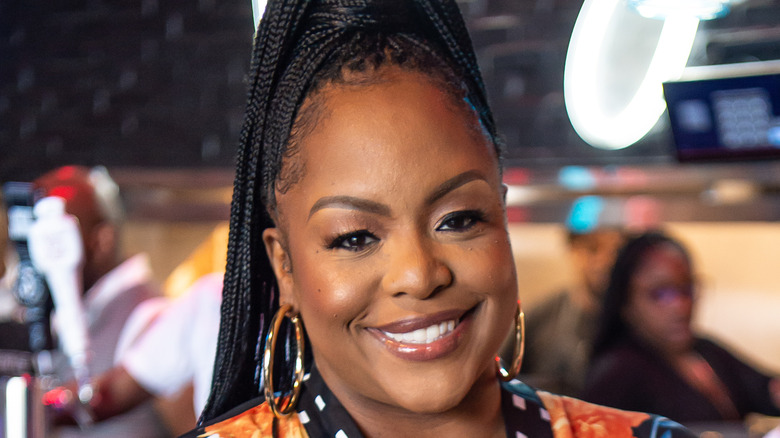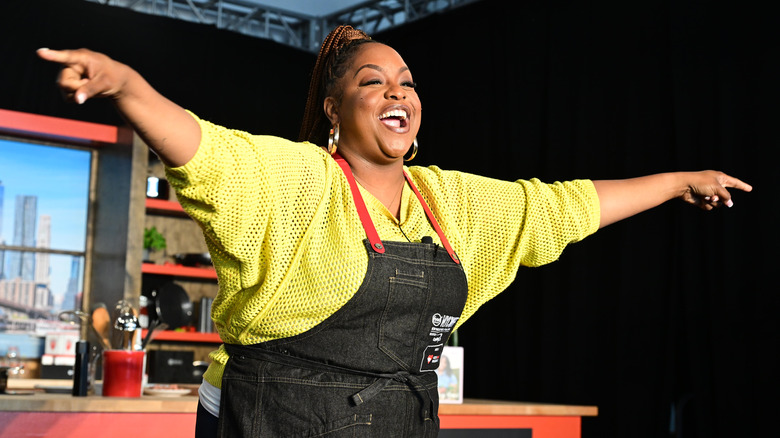Why It's Vital To Learn About Gullah Cooking, According To Kardea Brown - Exclusive
Food Network stars gathered in New York City this October for the annual NYC Wine and Food Festival, hosting cooking demonstrations, dinners, competitions, and more. At the festival's Grand Tasting on Pier 76, we caught up with Kardea Brown, host of Food Network's "Delicious Miss Brown" cooking show and author of the recently released cookbook, "The Way Home: A Celebration of Sea Islands Food and Family with over 100 Recipes." Inspired by her Gullah/Geechee family heritage, the book includes traditional and contemporary Gullah recipes that have defined Brown's cooking style. Before her show on the Food Network, Brown hosted the New Gullah Supper Club, a traveling pop-up that catered events everywhere from Charleston to Atlanta, with Gullah-inspired dishes as the focus of the meals.
We asked Brown why it was so important to introduce Gullah cooking to mainstream audiences and how to keep those traditions alive moving forward. "There's no Southern history — there's no American history without talking about Gullah history, which is the reason why we cook the things that we cook," says Brown. Digging into the heritage of Southern cooking, many of the ingredients, flavors, and traditions that define the cuisine as we know it today were brought to the South by enslaved West Africans between 1716 and 1807 — which Brown talks about in greater detail in the introduction of her book. "To me, it makes the eating experience that much more special when you know the origin of what you're eating," says Brown.
Keeping the tradition alive
When talking about the future of Gullah cooking, Brown sees the cuisine playing a bigger role in the culinary world, which she has begun to tackle through her own work. "I think it deserves that bigger stage, I think it's worth the conversation," she says. "And I think it deserves [that attention] even past my time." In her cookbook, Brown highlights many of the foods that originally came to the U.S. via the slave trade and are synonymous with Southern cooking today, including okra, yams, peas, hot peppers, benne seeds, and watermelon. She also notes that rice was cultivated so successfully in the South because of the enslaved people originally from rice-growing regions in West Africa.
Brown grew up in a cooking family and credits her mother and grandmother for instructing and inspiring much of her cooking journey. "In the kitchen is where I got to see and hear about all the special ways our families and our way of life went into the way we made pound cake, the way we prepared Hoppin' John," writes Brown in her cookbook, with emphasis on "we". When asked how to keep those kinds of traditions alive, Brown says showing the younger generations how to cook and take pride in the meals they create for themselves will help inspire them to keep family traditions going. "Not only can I enjoy this meal...but it's even better when you get to make it yourself."

